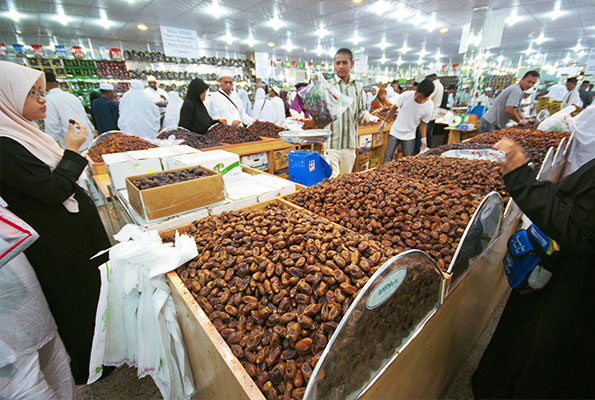According to recent Saudi government figures, the Kingdom’s inflation rate decreased to 3% in February 2023 from 3.4% in January as food and transportation costs fell.
According to the data, a 0.7% fall in food costs restrained the consumer price index’s (CPI) monthly increases. The cost of transportation decreased by 0.5% in February 2023 compared to January.
Nonetheless, compared to 1.6% in February 2022, the inflation rate was more significant annually. The non-food basket increased by 7% year over year, while the food and beverage basket increased by 3.1%.
According to Saudi Arabia’s General Directorate for Statistics, actual rents for housing grew by 8.3% in February 2023, including a 21.4% increase in flat rents.
According to the consulting firm Capital Economics, this could signal the beginning of a slight decrease in inflation. By the 2023 end, they anticipate it to settle at 1.5–2.0% on a YoY basis.
“Going ahead, the data from last month supports our prediction that inflation peaked in January and will gradually decrease for the remainder of the year,” it said.
“At the end of this year, the headline rate is predicted to be between 1.5 and 2.0% y/y, and it will remain at this level through 2024,” the consulting firm remarked further.
The firm also stated that the inflation prediction is subject to downside risks. However, the government will have more room to relax fiscal policy if oil prices stay high, and Crown Prince Mohammed bin Salman has suggested lowering the VAT rate.
Meanwhile, S&P Global has revised upwards it’s sovereign rating on Saudi Arabia to “A/A-1”, citing significant economic reform momentum in the last few years and the Kingdom’s economic diversification strategy under ‘Saudi Vision 2030’ to advance the development of the non-oil sector.
“Saudi Arabia’s significant reform momentum in recent years has begun to deliver structural improvements to its economy and fiscal and debt management,” said S&P Global in a statement.
The rating agency said it may upgrade Saudi Arabia by 2025 if it “observes further progress on institutional reforms”, including strong per capita economic growth and fiscal consolidation.
Moody’s also raised its outlook on the Kingdom to positive, saying the structural reforms that are being implemented will reduce the country’s reliance on energy revenues and its exposure to crude cycles. The rating agency reaffirmed its “A1” rating on Saudi Arabia.
Fitch Ratings, one of the big three rating agencies, generally assigns the Kingdom the same score as S&P Global while Moody’s has it one level higher.
Saudi Arabia’s GDP expanded by 8.7% in 2022, the highest among G20 countries, as the Kingdom’s non-oil sector and positive developments in the hydrocarbon market helped the Arab world’s biggest economy to combat the global slowdown with resilience.



